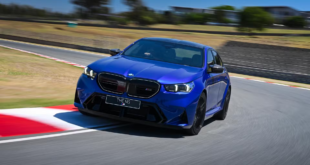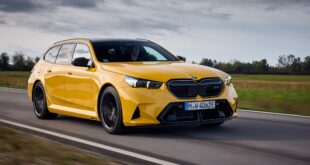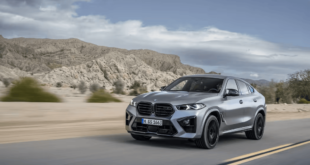The BMW M5 from the current F90 generation is one of the fastest-accelerating sedans money can buy. It can also easily eat the Autobahn at supercar speeds. The limited-run CS raises performance to a whole new level, but some people will always want more. To extract significant power from the V8, tuners like G-Power modify the engine.
This video shows the high-performance luxobarge travelling 300 km/h (186 mph) on an open portion of the German motorway without tiring. We’ve seen BMWs go even faster. But the M5’s ability to reach that speed in such a short period continues to wow us. This is a fact considering its size and weight.
The twin-turbo 4.4-litre engine in the outgoing M5 produces a robust 770 horsepower. G-Power also brings many packages specifically designed for it. The Competition version has 625 horsepower available, compared to the previously mentioned CS’s 635 horsepower. You’ll need to wait until 2025 for an even bigger punch. This is when the next-generation M5 arrives with a plug-in hybrid drivetrain based on the new S68 engine. There are also rumours that an M5 Touring, the third of its sort, is in the works.
The M5 G90 is on its last legs. With the eighth-generation 5 Series Sedan arriving before summer, it’s essentially now or never to get a new M5 with a pure gasoline engine that does away with electronic assistance. It’s reasonable to say that the era of electric performance vehicles has arrived with the release of the Porsche Taycan, Audi RS E-Tron GT, and Tesla Model S Plaid.
For purists who grew up with inline-sixes and V8s, a powerful combustion engine has a certain allure that a speedy EV can’t match. But there’s no doubt that electric cars’ superior acceleration results from their electric motors’ quick response.
 BMW.SG | BMW Singapore Owners Community The Ultimate BMW Community – Established Since 2001
BMW.SG | BMW Singapore Owners Community The Ultimate BMW Community – Established Since 2001













